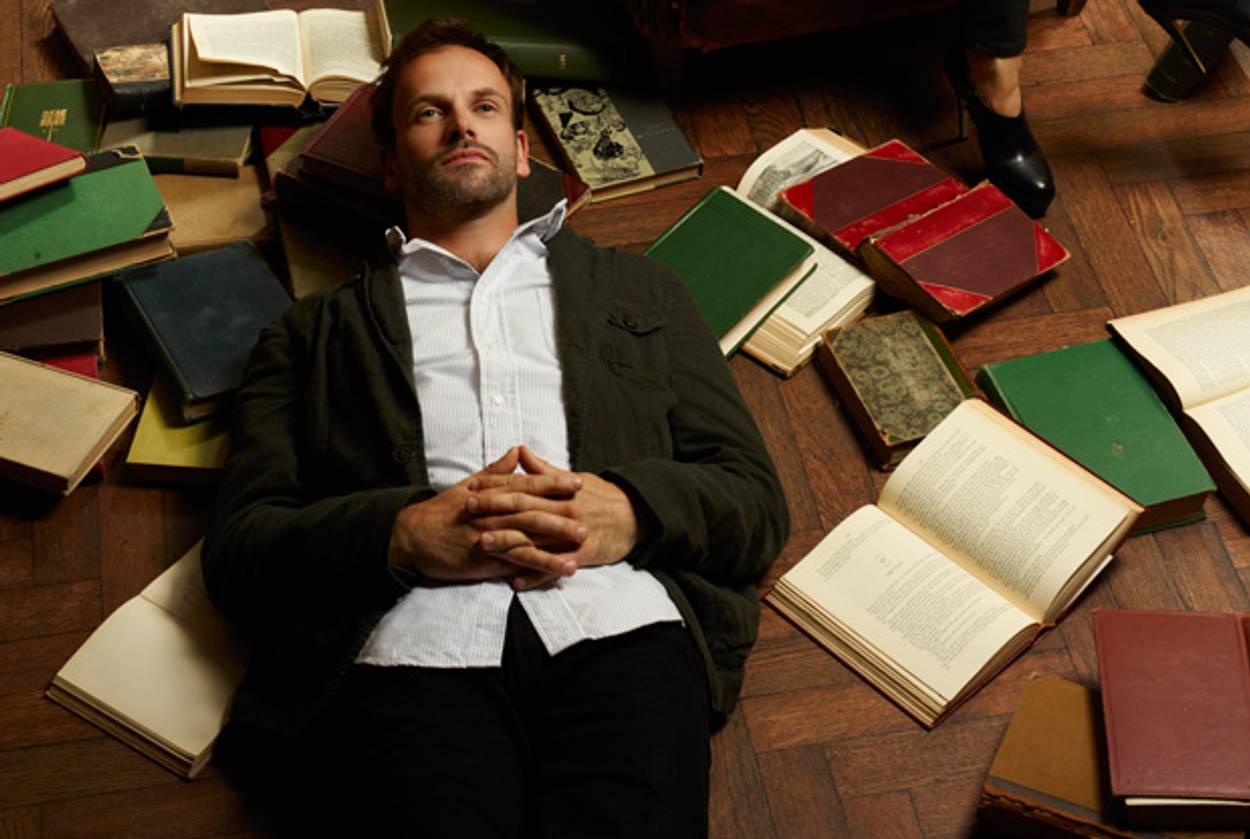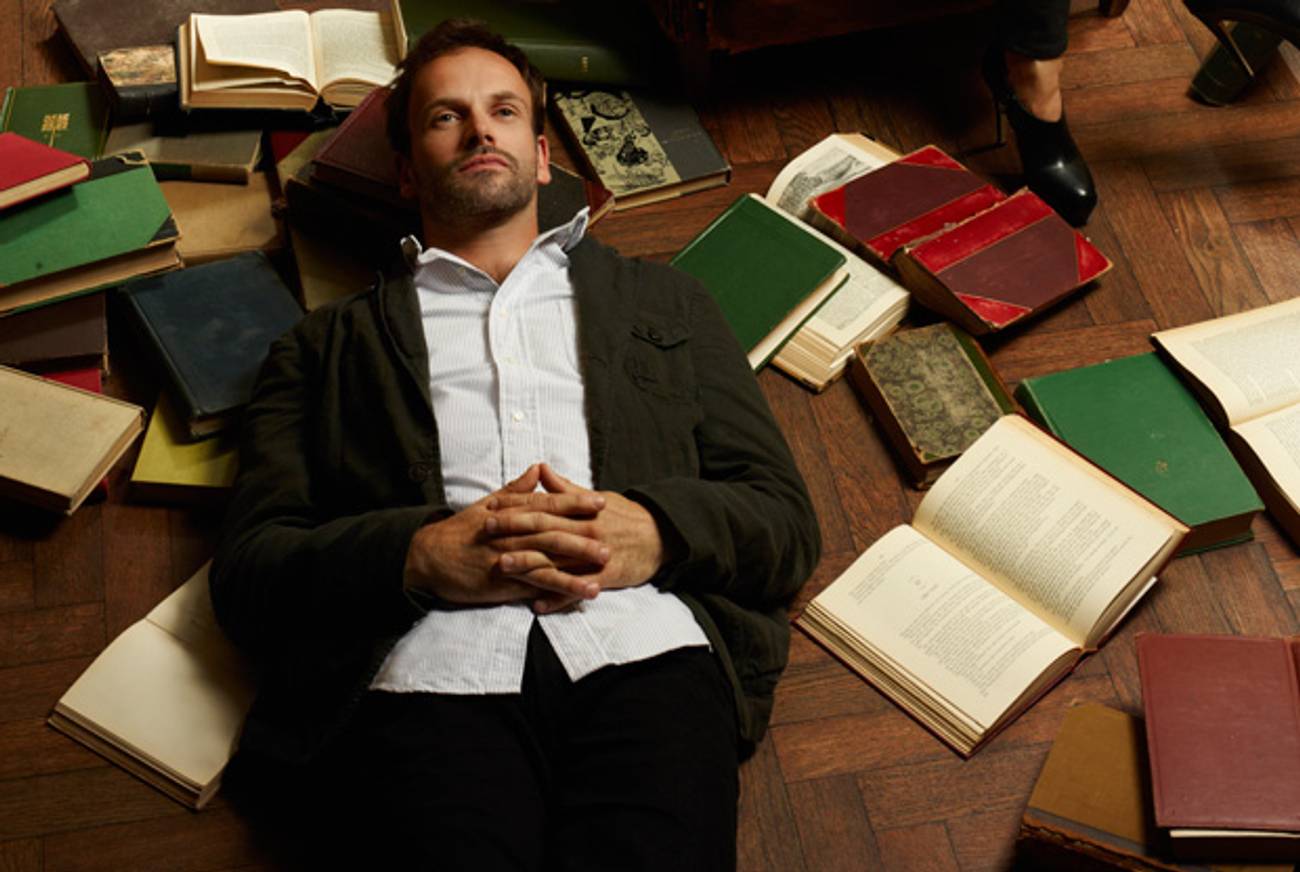The Jewish Sherlock Holmes
The world’s most famous detective, returning to TV tonight, is the embodiment of the non-Jewish Jew




Elementary, the new CBS series premiering tonight, follows a cantankerous and excessively brilliant detective who solves crimes by applying his powers of observation and deduction. His name is Sherlock Holmes, and he lives in New York.
To some, tearing the detective away from his London residence is akin to having John Wayne spur his horse down Madison Avenue—not only an absurdity but a vulgarity as well (to say nothing about casting Lucy Liu as Holmes’ substance-abuse counselor, one Dr. Watson). But while the new show will rise or fall on its own merit, its radical premise—the revamping of pop culture’s most iconic detective—allows us an opportunity to reconsider Holmes. If we do, we may just discover a yarmulke peeping from underneath the famed deerstalker.
This, on the surface, is a ridiculous statement, one that smacks of the cheapest kind of chauvinism. Not only did Arthur Conan Doyle make no reference that identifies his creation as Jewish, but Holmes—and, by extension, his author—is not above the occasional stroke of anti-Semitism.
“The same afternoon,” writes Conan Doyle in “A Study in Scarlet,” brought “a grey-headed, seedy visitor, looking like a Jew pedlar.” A notch above the author’s Jewish peddlers are his Jewish money-lenders: “He is mad keen upon winning the Derby,” Holmes informs Watson in “The Adventure of Shoscombe Old Place,” speaking of a proper aristocrat. “He is in the hands of the Jews, and may at any moment be sold up and his racing stables seized by his creditors.” And while it is common to assume that Irene Adler—who in many recent adaptations, although not in Conan Doyle’s original stories, is portrayed as Holmes’ love interest—is Jewish, no specific mention of her faith is ever made. Most likely, Adler, according to Conan Doyle enthusiasts, was based on Lola Montez, an Irish dancer and courtesan. Professor Moriarty, on the other hand, Holmes’ diabolical nemesis, was probably inspired by Adam Worth, born Werth, who, like Moriarty, was nicknamed the Napoleon of crime and who honed his thieving skills in New York before sailing across the pond and expanding his enterprise continentally.
But like all things Holmes, a second look reveals greater intricacies. Holmes is the solitary type, immersed in thought, at home in his mind. “I was never a very sociable fellow, Watson,” he tells his friend at one point, “always rather fond of moping in my rooms and working out my own little methods of thought.” These methods of thought, as we know all too well, depend on the obsessively attentive study of the most minute details. To best understand the world, Holmes believes, aim not for one grand, unifying theory but for a handful of small and incontrovertible facts.
Consider the detective in action in the case of “The Adventure of the Cardboard Box.” When said box arrives at the doorstep of Miss Susan Cushing, containing two severed human ears packed in coarse salt, the hapless Inspector Lestrade is quick to announce that he has solved the case. Cushing, goes his assertion, runs a boarding school and recently evicted three young tenants for their unruly behavior. One of the tenants was from Belfast, which is where the package originated from, and all three were medical students, which would explain their access to dismembered body parts. Enter Holmes: A medical student, he argues, would have used something other than plain salt to preserve severed ears and would have cut off the organs in question carefully, using a scalpel, rather than chopping them off with a knife. The handwriting on the envelope, Holmes continues, suggests someone without much education, and the package was tied in a complicated knot, the kind only sailors use. It doesn’t take long to find the real culprit.
If you hesitate to call this kind of thinking Talmudic, consider the following story from Tractate Sanhedrin, 104a. It might as well have emanated from 221B Baker Street:
Our Rabbis taught: It once happened that two men [Jews] were taken captive on Mount Carmel, and their captor was walking behind them. One of them said to the other, ‘The camel walking in front of us is blind in one eye, and is laden with two barrels, one of wine, and the other of oil, and of the two men leading it, one is a Jew, and the other a heathen.’
Their captor said to them, ‘Ye stiff-necked people, whence do ye know this?’ They replied, ‘Because the camel is eating of the herbs before it only on the side where it can see, but not on the other, where it cannot see. It is laden with two barrels, one of wine and the other of oil: because wine drips and is absorbed [into the earth], whilst oil drips and rests [on the surface]. And of the two men leading it, one is a Jew, and the other a heathen: because a heathen obeys the call of Nature in the roadway, whilst a Jew turns aside.’
He hastened after them and found that it was as they had said.
If Sherlock Holmes wanted a concise term for his little methods of thought, he might have referred to them as pilpul, the method of studying a text, particularly the Talmud, by engaging with its every morsel of meaning.
Still, how to reconcile Holmes’ mind—the likes of which have been cultivated in yeshivas for centuries—with the rest of his person, a bohemian freak who keeps his tobacco in his slipper and shoots at the walls for pleasure? One way would be to see him as, to borrow a phrase from Isaac Deutscher, a non-Jewish Jew. In his masterpiece, The Jewish Century, historian Yuri Slezkine argues that such Jews—think Deutscher himself, or, more notably, Freud and Marx—were the paragons of modernity, representing a radical new way of being in the world that ushered in the age of cosmopolitan globalism. This, Slezkine argued, was because humanity, roughly speaking, comes in two shades: The Apollonians, who are rural folk who till the soil and live off the land, and the Mercurians, who do not. The latter, Slezkine wrote, are “urban, mobile, literate, articulate, intellectually intricate, physically fastidious, and occupationally flexible.” They are, in other words, Jewish. Put differently, they are Sherlock Holmes. They don’t announce their ethnic and religious identity; they simply embody it.
***
Like this article? Sign up for our Daily Digest to get Tablet Magazine’s new content in your inbox each morning.
Liel Leibovitz is a senior writer for Tablet Magazine and a host of the Unorthodox podcast.
Liel Leibovitz is editor-at-large for Tablet Magazine and a host of its weekly culture podcast Unorthodox and daily Talmud podcast Take One. He is the editor of Zionism: The Tablet Guide.